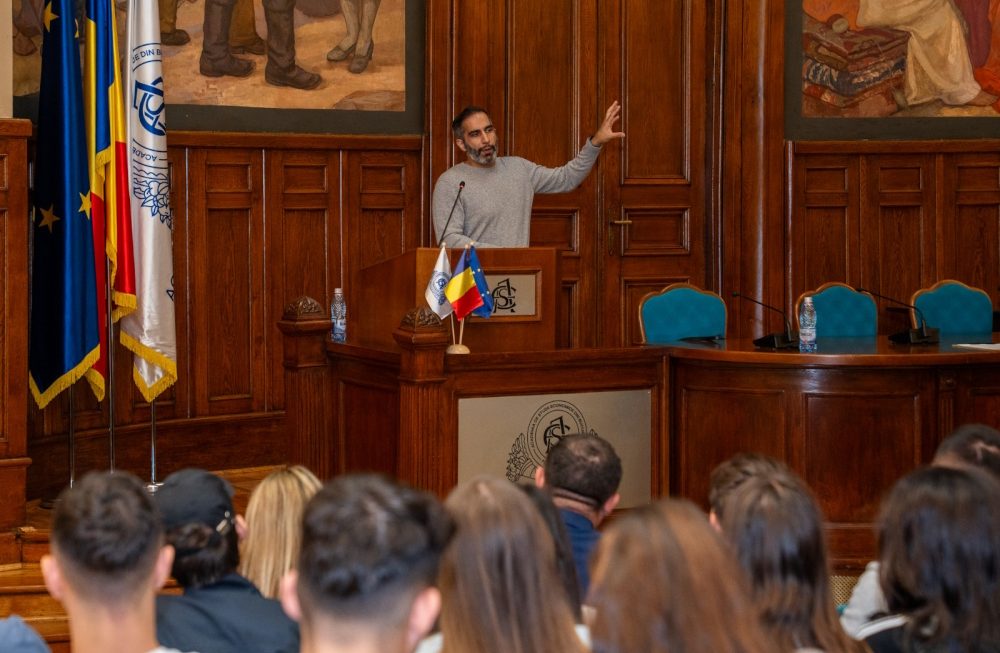
Scapegoats in the Pandemic
Foto: liliiayurkevych / depositphotos.com
The COVID-19 pandemic has brought public life to a virtual standstill. Confined to our homes for long stretches of time, we stopped going out, limiting ourselves to talks on Zoom or similar platforms. Businesses relying on their customers‘ physical presence were greatly affected, but one industry was hit especially hard. Some people like to go see a movie or a play from time to time. Others prefer sport events. Some folks like museums. Others go to concerts. But almost all of us are at least on some occasions patrons in restaurants. We don‘t even have to like it – think of boring dinner parties.
Because restaurants and cafes are omnipresent in our urban economic ecosystem, their predicament is extremely visible – we can all recall the depressing image of closed down eating places in popular places. But it also affects a very large number of people. From restaurant owners and caterers to people toiling in kitchens & bars, all the way down to the waiters. From food producers to beverage suppliers with all their logistics. The exact number isn’t clear, because it depends on how you count, but if you listen to HORA, the employers’ association of the hospitality industry in Romania, there are some 400 thousand people working in a sector, which produces 1,7% of Romania’s GDP – at least according to the Hospitality Culture Institute, an organization that (by its own description) gathers industry leaders and professionals, academic personnel, architects, media representatives, entrepreneurs and business angels.
I wanted to talk about the difficult situation of restaurant businesses with somebody directly affected and asked Cosmin Dragomir, a former journalist turned restaurateur, to share some insights. In October 2019, he opened Blid, a small eatery proposing a different angle on the Romanian cuisine. Then COVID-19 hit, he tells me when we sit down for a talk at the end of March, during the third wave of the pandemic, while in the city center protesters gather to march against restrictive measures. People felt insecure, stopped coming, he recollects. Then the lockdown. Blid went into the delivery business. Not wanting to increase prices, instead of partnering with the big delivery services, Cosmin Dragomir opted for a small startup, which designed the site and implemented a card payment system. They started small, catering only to their neighborhood. Palm Sunday, for which they came up with a fish menu, ended almost in a fiasco – on what felt like every corner, police cars stopped the staff, causing huge delays and meals to get cold. Easter was a different story, with its cold cuts of Haggis-like Drob and Cozonac-cake.
Then gardens opened at 30% capacity. But it didn’t really work out for Blid, because with a small kitchen it was difficult to juggle both seated customers and delivery orders. With 35 seats, operating at 30% (later 50%) capacity it was difficult to keep the business afloat, because rent had to be paid and the overhead costs remained high. At the end of 2020, after the second wave of the pandemic, the team behind Blid had to throw in the towel.
It’s hard to judge how typical Cosmin Dragomir’s story is – there are many of those to tell in a sector this diverse. But one thing most players share is the bitter taste of being singled out and sometimes vilified during the pandemic. Why did the government shut down the hospitality industry and not malls, whenever a pandemic wave hit, and how come they fear people will be infected in restaurants operating at 30% capacity, but not in hypermarkets, Dragomir asks somewhat rhetorically – are these decisions actually based on real studies? (In fact, there are at least two I came across when doing some research: one by researchers from Stanford and Northwestern University, the other published in the Journal of Korean Medical Science – and both indicate an infectious potential for restaurant customers. But I haven’t heard about those from officials designing lockdown measures.)
Still, Dragomir is not some unapologetic defender of everybody in the business. He supported symbolic protests, when owners and chefs and waiters stood in front of their joints, holding up billboards to signal their problems. But when during another demonstration staged in front of the government headquarters in Victory Square people took down their masks, he took a step back from the protesters – we have to be the first to show that we care for safety rules, he says.
And he has some harsh words for clubs organizing clandestine parties or restaurants cutting corners. ”Fish tanks cheating the law” he calls the plastic bubbles built by some bistros, many of them in plain sight in the Old Town of Bucharest. The owners are exploiting loopholes – and as he puts it, a plastic bubble doesn’t even qualify as a terrace according to the law regulating the smoking ban, not to mention safety regulation to combat the pandemic. But when it comes to laws, some are more equal than others, he shrugs.
Perhaps the industry should have weeded out it’s own bad apples, but the stakeholders are divided, with small groups rivaling. Yes, the employer’s organizations have done a pretty decent job (Dragomir: ”Maybe God could have lobbied more effectively under the circumstances.”), but a more united front, with producers and suppliers joining in, could have brought tens of thousands of people to the street. But with only a few hundreds protesting, no government will care. That is maybe one of Cosmin Dragomir’s regrets – a few years ago he and others started to form a union movement of all people working in the HORECA sector. It didn’t really work out: fearing that the leaders would use the money to their own benefit, members couldn’t agree on a membership fee: “Today they wouldn’t be able to pay for a website, not to mention legal services”.
Especially for the many employees, a common voice could have been a real advantage. Take waiters. Most of them make minimum wage as it is and top up earnings with tips. Which is fine during normal times. But when the restaurant business grinds to a halt, many of them will be furloughed with 75% of their wage and no tips. Some, but not all of them, will go on to find jobs in the flourishing delivery sector. For many it will be difficult to get by. One positive development on the representation front is at least that seven regional organizations with more than 1,000 individual members will join forces in a Federation of the Hospitality Industry.
Like elsewhere, hard-pressed companies turned to the state for help. Very little came, though. Government officials promised a lot, but as Cosmin Dragomir puts it, the promise is cheap, and nothing happened. Indeed, a scheme for compensating 20% of the losses hotels and restaurants incurred during 2020 (as compared to 2019) was adopted, then halted, then restarted – and according to latest development, business may apply for the money only as of June. And while during the first waves of the pandemic the state allowed the deferment of taxes and loan repayments, debts accumulate and will have to be paid back eventually. Good ideas like vouchers given to the public to spend in restaurants and pubs were quickly dismissed, although in other cities greatly affected by lockdowns they were a success. Take Vienna: to prop up restaurants and cafes, hit by the pandemic, the municipality of the Austrian capital sent vouchers of up to 50 Euros by post to basically all families living in the city. The Rathaus – Vienna’s City Hall – budgeted almost 40 million Euros for the initiative.
By contrast, Romanian authorities simply don’t seem to understand what happens in the real world. Look at the sanitation regulations meant to prevent COVID-19: their idea was to make it mandatory for cooks to wear gloves, which from the hygiene point of view is a nightmare, Cosmin Dragomir laughs. He gives me another example: a certificate of COVID affected companies, which had to be requested within a certain time frame, based on accounting documents. It’s just that small restaurants don’t have enough people to deal with the red tape, so they may miss the deadline – like it happened to him. OK, it was our mistake, he concedes, but at the time we were in the situation where the cook had to jump in the car and make deliveries.
This happens not only to restaurants. Dragomir is not only a chef and restaurant owner, but also publishes gastronomy books, and he applied for grants for his other projects. While he is certain to be eligible, he didn’t see a dime.
He is not alone in his disappointment. Many firms and NGOs are unhappy with the assistance of the Romanian state during the crisis, a survey by the National Council of Small and Medium Enterprises among more than 2,500 entities recently revealed. Almost 70% said that governmental support measures were useful, but insufficient while more than 20% – meaning one in five – found the measures downright useless. And only less than 13% claimed that the support was useful. Many of those questioned in the survey confirmed what Cosmin Dragomir is also saying. Two thirds of those considering the aid useless or insufficient spoke of unrealistic criteria and bad design, while almost 40% mentioned underfunding and 30% too much red tape.
It was definitely a bad year for Romania’s HORECA business. And for Cosmin Dragomir, who ended up with a lot of debt. Now he focuses on his writing and research into all things gastronomical. Already he has published a collection of articles. His biggest project ahead is a historic encyclopedia of the Sarma, the region’s iconic dish. And given the complexity of the topic, this will probably be something as challenging as the pandemic itself.
Alex Gröblacher
Share
Share















